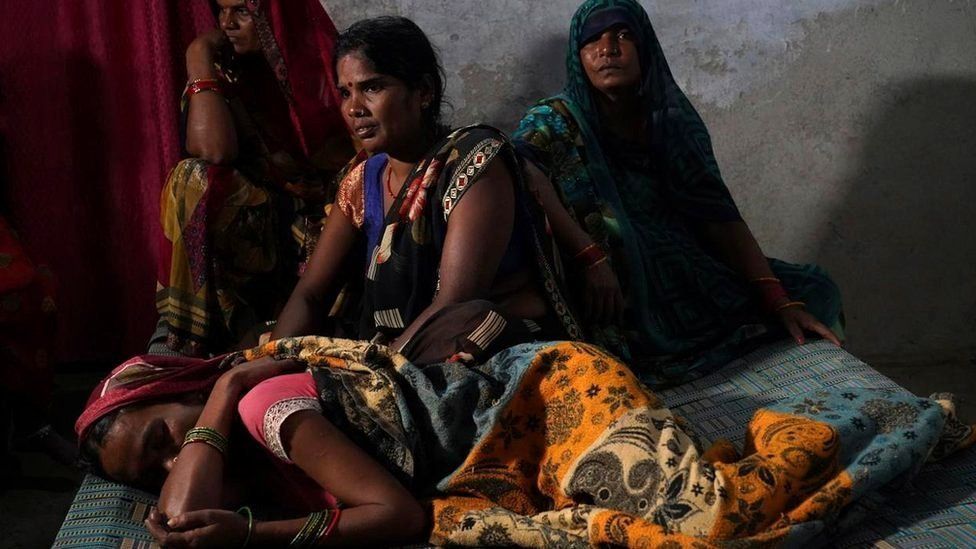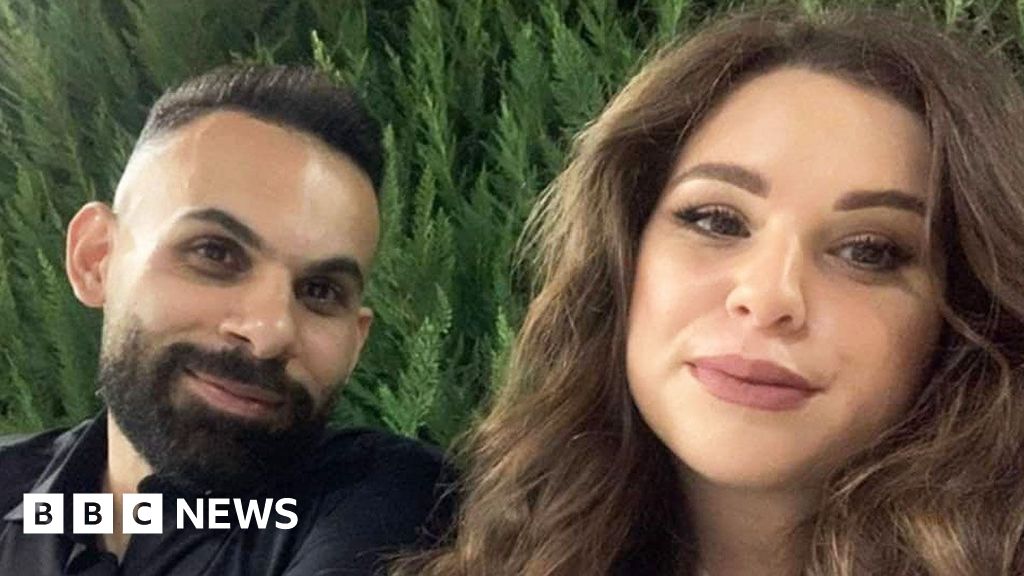ARTICLE AD BOX
 Image source, Anshul Verma
Image source, Anshul Verma
The girls' mother is inconsolable after the alleged rape and murder of her daughters
Days after two Dalit (formerly known as untouchables) sisters were found hanging from a tree in the northern Indian state of Uttar Pradesh, a post-mortem has reportedly confirmed that the girls were raped and murdered. The BBC's Geeta Pandey reports from the girls' village in Lakhimpur district where their families are trying to come to terms with their colossal loss.
Torrential rains have lashed the region since Wednesday night, muddying the narrow path to their home in Tamoli Purva village, just over 200km (124 miles) from the state capital Lucknow.
The gloom inside the two-room home perfectly mirrors the grey skies outside.
Here sits the family of two sisters - 17 and 15 - whose lives were brutally cut short, when they were raped and strangled to death in a sugarcane field, not far away from their home.
Their mother, the only witness to her daughters' kidnappings by three men who came on a motorbike on Wednesday afternoon, sits on a rope bed, surrounded by female relatives.
"My daughters are gone. How will I live now?" she asks, tears rolling down her cheeks. "They lived here," she says patting her heart.
A minute later, sorrow gives way to anger. "I want to see all those men hanged, just the way they hanged my daughters," she says.
Image source, Anshul Verma
Image caption,The victims' bodies were discovered hanging from a tree in a nearby field
Six men have been arrested for the gang rape and murder of the girls. One of them is a neighbour and the remaining five are Muslims from a nearby village.
The murders have shone the spotlight again on the sexual violence faced by India's 80 million Dalit women, a community that is at the bottom of India's deeply discriminatory caste hierarchy.
Critics say that caste-based sexual violence is exacerbated by inefficient governance - police are slow to register a complaint, and even when they do, they raise doubts there was a rape. Authorities have also been accused of protecting culprits in the past.
Image source, Anshul Verma
Image caption,Several politicians and NGOs have been visiting the family
This time too the police investigation has roused suspicions and triggered protests by locals and opposition parties.
Police say the sisters were in relationships with two of the men who murdered the girls because they were putting pressure on them to marry them.
But the claim is strongly contested by the family and relatives. They remember the girls with warmth and affection.
The older had dropped out of school to take care of home and hearth because of their mother's ill health.
"She would cook and clean and do all the chores and look after me," says their mother who had a surgery six months ago.
The younger was the "studious sort" who was studying in the 10th grade in a school in a nearby town.
"She wanted to study a lot," said their father, a day wage labourer who earned 250 rupees ($3.14; £2.75) a day. "I had promised her that I would help her complete high school."
Image source, Anshul Verma
Image caption,The older daughter loved to sew, says her mother
Living in a small village, the sisters had few opportunities, but their family say, that they were talented and nurtured dreams.
The 17-year-old had a talent for stitching clothes. Her older brother says he used to take her to a nearby village over four months as she learnt sewing.
After he started working, first in Himachal Pradesh and then in Delhi, he bought her a sewing machine during the festival of Holi in March.
Their mother shows off her pink blouse. "My daughter made it for me," she says.
The 15-year-old was fond of art, she says, leafing through her youngest daughter's drawing book.
There are few pictures of the sisters. The family say they did not have mobile phones, but they show me one passport size photograph of the 15-year-old.
Image source, Anshul Verma
Image caption,The younger daughter was a bit of an artist who loved to draw and paint
The girl, pictured against a white background, sports two long pigtails and there's just a hint of a smile.
"She was the ambitious one. She wanted to study and work. She wanted to open a beauty parlour," says an aunt.
Those dreams are now lost forever, says their brother.
Crimes against women have long taken place in Uttar Pradesh, India's most populous state with more than 200 million people. The place is also home to a staggering number of poor people and it is the poor and disadvantaged low-caste women who are most at risk.
Image source, Anshul Verma
Image caption,The entire neighbourhood is rattled by the murders
Back in Lakhimpur, the brother remembers the last time he met his sisters.
"I saw them when I came home during the festival of Rakhi in August," he says, adding that the family celebrated the Hindu festival with much joy and laughter.
"We were all so happy. We never thought that something like this could ever happen in our village. My sisters lived a very protected life, they never went anywhere alone," he says.
"If it can happen to us, it can happen to anyone."

 2 years ago
25
2 years ago
25








 English (US) ·
English (US) ·